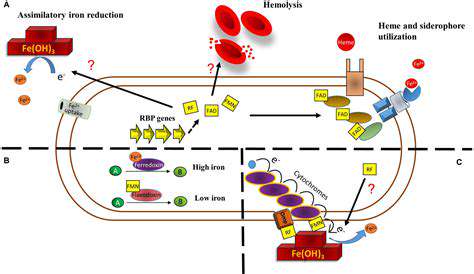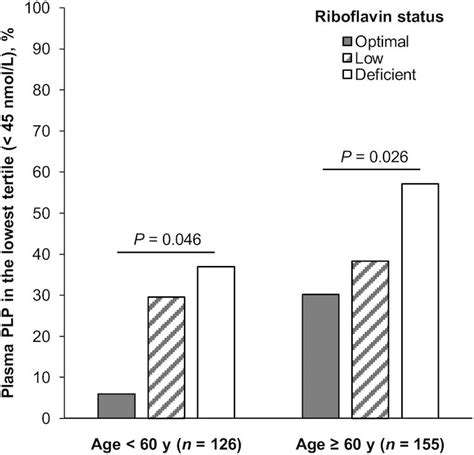The Vital Role of Riboflavin in Migraine Prevention
Understanding Riboflavin's Migraine-Reducing Potential
Riboflavin, also known as vitamin B2, plays a crucial role in numerous bodily functions, including energy production and cell growth. Recent research suggests a potential link between adequate riboflavin intake and reduced migraine frequency and severity. This connection stems from riboflavin's involvement in converting food into usable energy, a process integral to the nervous system's overall function. Maintaining optimal riboflavin levels might therefore contribute to a more stable neurological environment, potentially lessening the triggers that initiate migraine attacks.
Studies have shown that individuals with migraine often exhibit lower riboflavin levels compared to those without the condition. This observation highlights the importance of sufficient riboflavin intake in maintaining overall health and potentially mitigating migraine susceptibility. Further research is needed to definitively establish a direct cause-and-effect relationship, but the existing evidence points towards a promising avenue for migraine prevention and management through nutritional strategies.
Dietary Strategies for Maximizing Riboflavin Intake
A balanced diet rich in riboflavin-rich foods is paramount for achieving optimal levels of this essential vitamin. Excellent sources include milk, eggs, leafy green vegetables, and fortified cereals. Incorporating these foods into your daily meals can significantly contribute to your overall riboflavin intake. Paying attention to food preparation methods is also important, as some cooking methods can reduce the riboflavin content of certain foods.
Fortifying your diet with riboflavin-rich foods can positively influence your body's ability to manage potential migraine triggers. Furthermore, considering riboflavin supplements in consultation with a healthcare professional might be beneficial for individuals who struggle to meet their riboflavin requirements through diet alone. A holistic approach to maintaining healthy riboflavin levels, combined with lifestyle modifications, may prove to be a valuable strategy for optimizing migraine prevention.
Dairy products, such as milk and yogurt, are excellent sources of riboflavin. Leafy green vegetables like spinach and kale are also valuable sources, and fortified cereals often contain added riboflavin. A diverse diet that includes these foods can help ensure adequate intake.
Ensuring adequate riboflavin intake through dietary choices is crucial for overall well-being and potentially for mitigating migraine triggers. A balanced diet rich in riboflavin-rich foods can contribute significantly to preventing and managing migraines.
Consult a healthcare professional or registered dietitian for personalized recommendations on increasing riboflavin intake through diet and potential supplementation, especially if you suspect a deficiency or have specific dietary needs.

Lifestyle Modifications for Optimal Riboflavin Status

Dietary Changes for Optimal Health
A crucial aspect of optimizing your lifestyle involves making significant dietary changes. Prioritizing whole, unprocessed foods like fruits, vegetables, and lean proteins is paramount for sustained energy levels and overall well-being. These foods are packed with essential vitamins, minerals, and fiber, contributing to a healthy digestive system and promoting satiety. Reducing processed foods, sugary drinks, and excessive saturated fats is equally important for preventing chronic diseases and maintaining a stable weight.
Implementing a balanced diet rich in complex carbohydrates, such as whole grains, can provide sustained energy throughout the day. The inclusion of healthy fats, like those found in avocados and nuts, supports various bodily functions and contributes to a balanced nutritional intake. This approach not only enhances physical health but also positively impacts mental clarity and emotional well-being.
Exercise and Physical Activity
Regular physical activity is essential for maintaining a healthy weight, boosting cardiovascular health, and enhancing mood. Incorporating a variety of exercises, including cardio, strength training, and flexibility exercises, can provide a well-rounded approach to physical fitness. Finding activities you genuinely enjoy will make sticking to a routine far more sustainable. This could involve anything from brisk walking and jogging to swimming, cycling, or team sports.
Aiming for at least 150 minutes of moderate-intensity aerobic activity or 75 minutes of vigorous-intensity activity per week is a good starting point. Consistency is key to reaping the numerous benefits of exercise, from improved sleep quality to reduced stress levels. Adding strength training exercises two or three times a week can further build muscle mass and boost metabolism, contributing to long-term health benefits.
Stress Management Techniques
Chronic stress can significantly impact various aspects of your health, including physical, mental, and emotional well-being. Implementing effective stress management techniques is crucial for maintaining a balanced lifestyle. These techniques can range from simple relaxation exercises like deep breathing to more structured approaches, such as meditation and mindfulness practices.
Engaging in activities that promote relaxation, such as reading, listening to music, or spending time in nature, can effectively reduce stress levels. Prioritizing sufficient sleep, maintaining a healthy diet, and establishing a consistent sleep schedule are also vital components of effective stress management. Seeking support from friends, family, or a therapist when needed can further enhance your ability to cope with stress and maintain emotional well-being.
Sleep Hygiene and Rest
Adequate sleep is paramount for physical and mental restoration. Establishing consistent sleep hygiene practices can significantly impact your ability to achieve optimal rest. This includes maintaining a regular sleep schedule, creating a relaxing bedtime routine, and ensuring a conducive sleep environment.
Prioritizing a dark, quiet, and cool bedroom environment can contribute significantly to a more restful sleep. Limiting screen time before bed and avoiding large meals or caffeine close to bedtime can also improve sleep quality. Adequate sleep is directly linked to improved cognitive function, emotional regulation, and overall physical health.
Social Connection and Support Systems
Maintaining strong social connections and a robust support system is crucial for overall well-being. Nurturing relationships with friends, family, and community members provides emotional support and a sense of belonging. Strong social connections can buffer against stress and promote a positive outlook on life. Engaging in activities that foster social interaction, such as joining clubs, volunteering, or attending social gatherings, can help strengthen these connections.
Seeking support from friends, family, or a therapist when needed can further enhance your ability to navigate challenges and maintain emotional well-being. Cultivating these connections creates a supportive network that can provide encouragement, understanding, and a sense of community.